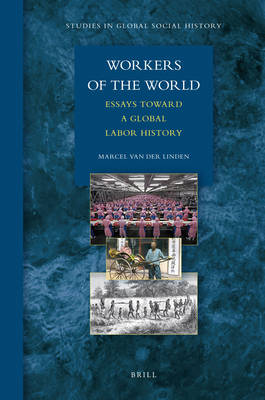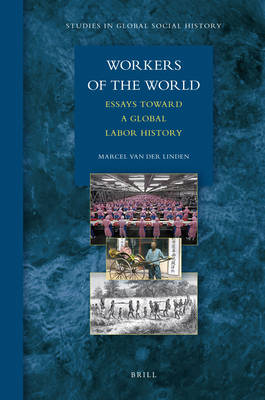
- Afhalen na 1 uur in een winkel met voorraad
- Gratis thuislevering in België vanaf € 30
- Ruim aanbod met 7 miljoen producten
- Afhalen na 1 uur in een winkel met voorraad
- Gratis thuislevering in België vanaf € 30
- Ruim aanbod met 7 miljoen producten
Zoeken
€ 99,45
+ 198 punten
Uitvoering
Omschrijving
The studies offered in this volume contribute to a Global Labor History freed from Eurocentrism and methodological nationalism. Using literature from diverse regions, epochs and disciplines, the book provides arguments and conceptual tools for a different interpretation of history - a labor history which integrates the history of slavery and indentured labor, and which pays serious attention to diverging yet interconnected developments in different parts of the world. The following questions are central:
▪ What is the nature of the world working class, on which Global Labor History focuses? How can we define and demarcate that class, and which factors determine its composition?
▪ Which forms of collective action did this working class develop in the course of time, and what is the logic in that development?
▪ What can we learn from adjacent disciplines? Which insights from anthropologists, sociologists and other social scientists are useful in the development of Global Labor History?
▪ What is the nature of the world working class, on which Global Labor History focuses? How can we define and demarcate that class, and which factors determine its composition?
▪ Which forms of collective action did this working class develop in the course of time, and what is the logic in that development?
▪ What can we learn from adjacent disciplines? Which insights from anthropologists, sociologists and other social scientists are useful in the development of Global Labor History?
Specificaties
Betrokkenen
- Auteur(s):
- Uitgeverij:
Inhoud
- Aantal bladzijden:
- 478
- Taal:
- Engels
- Reeks:
- Reeksnummer:
- nr. 1
Eigenschappen
- Productcode (EAN):
- 9789004184794
- Verschijningsdatum:
- 12/11/2010
- Uitvoering:
- Paperback
- Formaat:
- Trade paperback (VS)
- Afmetingen:
- 152 mm x 234 mm
- Gewicht:
- 680 g

Alleen bij Standaard Boekhandel
+ 198 punten op je klantenkaart van Standaard Boekhandel
Beoordelingen
We publiceren alleen reviews die voldoen aan de voorwaarden voor reviews. Bekijk onze voorwaarden voor reviews.








